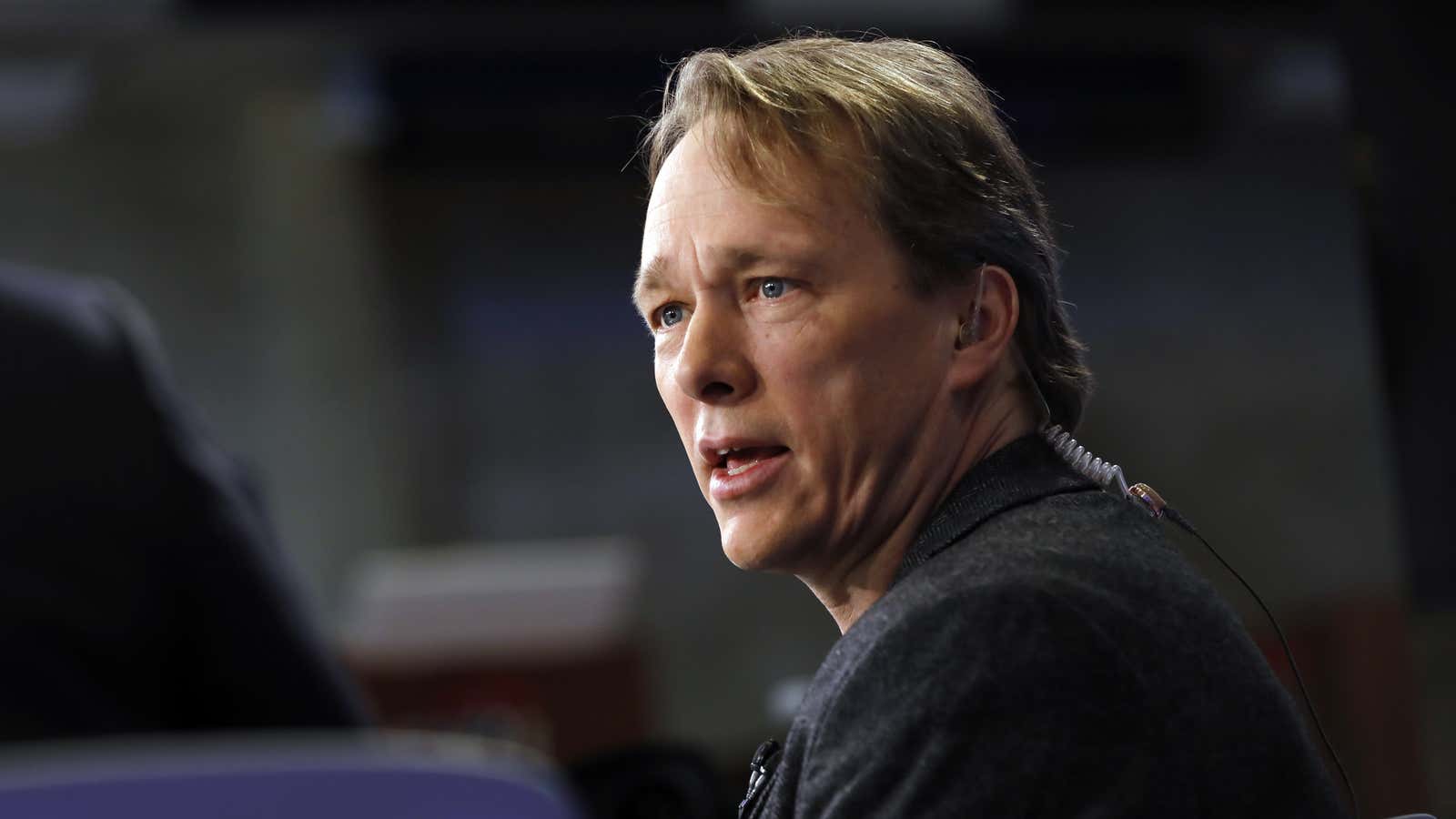Bruce Linton, co-founder of Canopy Growth—the world’s biggest publicly traded cannabis company—was ousted today.
Canopy said Linton “will step down” as co-CEO and board member immediately, and that Mark Zekulin will stay on as the sole chief executive.
Linton later said that he was fired—and that Canopy’s new investors from the beverage world wanted him out.
“I think stepping down might not be the right phrase,” he told CNBC. “I was terminated.”
Constellation Brands—parent of brands including Corona beer, Modelo lager, and Robert Mondavi wines—invested $4 billion in Canopy in August, providing what Linton called “rocket fuel” for his company’s growth. The investment bought a 38% stake in the company. A restructuring of its board gave Constellation the power to appoint four of the seven directors. Canopy also appointed Mike Lee, a Constellation veteran, as financial chief in May.
On Constellation’s recent earnings call, CEO Bill Newlands said he was “not pleased with Canopy’s recent reported year-end results,” which included a net loss of CAD$323 million (US$247 million). However, Canopy is giving investors reasons to be optimistic, including a massive New York hemp-growing facility that should help the company to tap the booming US CBD market. (Martha Stewart signed on as an advisor for the CBD segment.)
Cannabis companies are increasingly taking big investments from big-money backers in the tobacco, food, beverage, and pharma markets. In 2018, the value of mergers and acquisitions in the cannabis industry topped $15 billion—more than a third of which came from tobacco and alcohol players.
Still, Linton—who co-founded Canopy (then called Tweed) in 2012—said he didn’t regret Canopy taking Constellation’s money. It was better than facing the company as a competitor.
“It was really important for the company to take the $5 billion, because otherwise Constellation—who is a very powerful company—may have decided to put other oars in the water,” Linton told CNBC. “When you bring in a big check and you change the board, there’s always some perceived risk. But it would have been worse for the company if we didn’t do that.”
